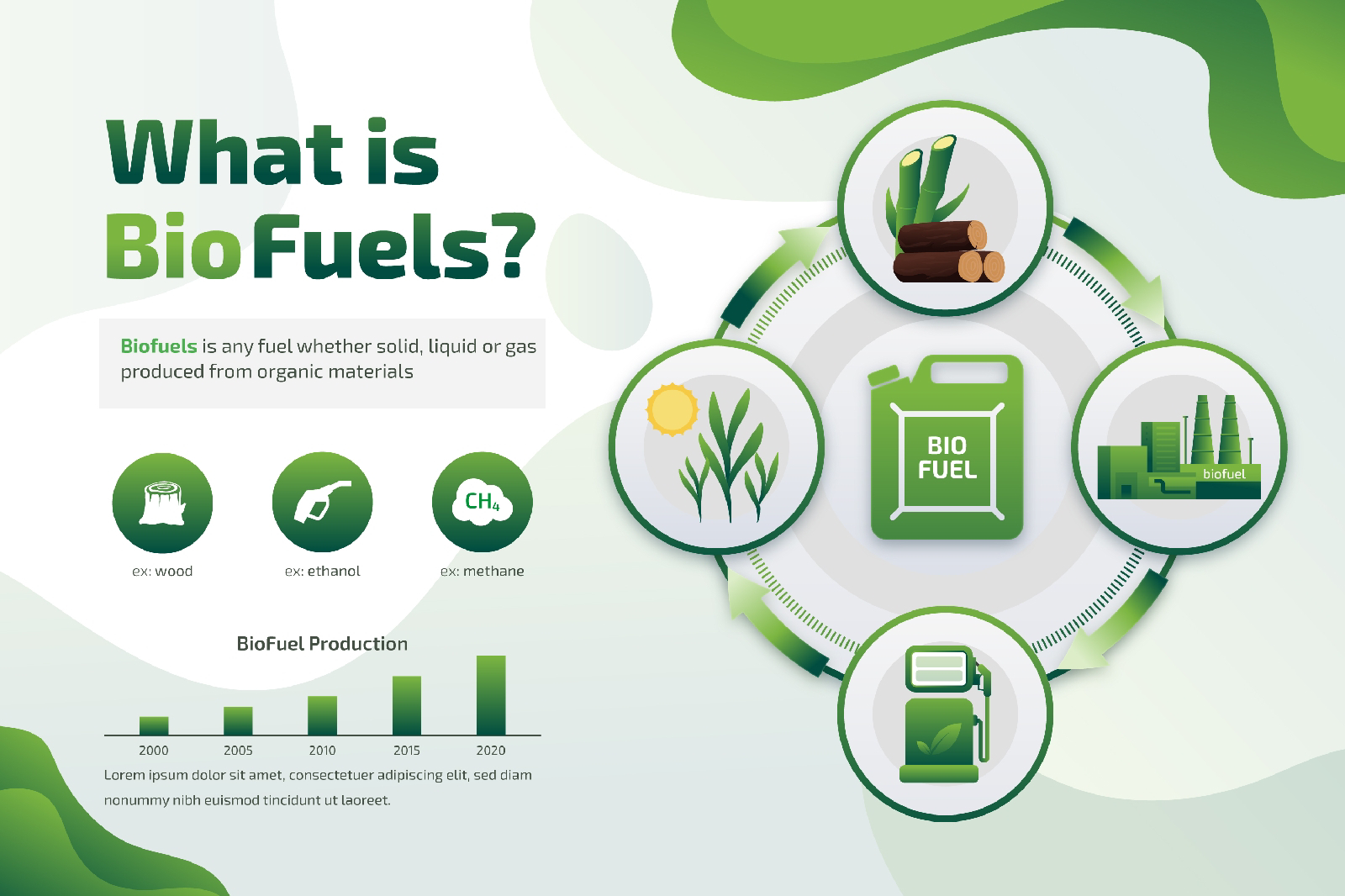Bio Fuel Alliance : An Initiative to adopt BioFuels
First of all,
What is Bio-Fuel ?
Unlike other renewable energy sources, biomass can be converted directly into liquid fuels, called "biofuels," to help meet transportation fuel needs. The two most common types of biofuels in use today are ethanol and biodiesel, both of which represent the first generation of biofuel technology.
Wait,
What is Bio-Mass ?
Okay, Let me explain,
Biomass is organic, meaning it is made of material that comes from living organisms, such as plants and animals. The most common biomass materials used for energy are plants, wood, and waste.
Wood is still the largest biomass energy resource today. Other sources include food crops, grassy and woody plants, residues from agriculture or forestry, oil-rich algae
Now, I’m returning to my Bio-Fuel point…
So, the Bioenergy Technologies Office (BETO) is collaborating with industry to develop next-generation biofuels made from wastes, cellulosic biomass, and algae-based resources.
BETO is focused on the production of hydrocarbon biofuels—also known as “drop-in” fuels—which can serve as petroleum substitutes in existing refineries, tanks, pipelines, pumps, vehicles, and smaller engines.
Okk..Now tell me about
What is Bio Fuel Alliance ?
So, basically it's an initiative to develop an alliance of governments, international organisations and industry to facilitate the adoption of biofuels. It brings together the biggest consumers and producers of biofuels to drive its development and deployment, and position biofuels as a key to energy transition.
So, tell me exactly
How many countries have joined till now ?
A total of 19 countries and 12 international organizations have so far agreed to join the alliance, including both G20 members and non-member countries. India, Brazil and the US are the founding members of the alliance. The non-G20 interested in joining the alliance are Iceland, Kenya, Guyana, Paraguay, Seychelles, Sri Lanka, and Uganda and Finland.
According to estimates from the International Energy Agency (IEA), Global Biofuel production would need to triple by 2030 to put the world’s energy systems on track toward net zero emissions by 2050.
Okkay…That's a great news..
Read Further | Key Points of 18th G20 New Delhi Summit






Comments
Post a Comment